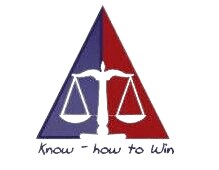Best Arrests & Searches Lawyers in Pune
Share your needs with us, get contacted by law firms.
Free. Takes 2 min.
List of the best lawyers in Pune, India
About Arrests & Searches Law in Pune, India
Arrests and searches in Pune, India, are governed by the Criminal Procedure Code (CrPC) and various other laws designed to uphold justice while protecting the rights of citizens. The procedure and legality of arrests and searches are strictly regulated to prevent misuse and ensure the protection of fundamental rights. Understanding these laws is crucial for anyone who may find themselves involved in such situations, whether directly or indirectly.
Why You May Need a Lawyer
There are several situations where you might require legal assistance concerning arrests and searches in Pune:
- Being Arrested: If you or a loved one is arrested, understanding your rights and the legal process is crucial. A lawyer can help navigate the complexities and ensure fair treatment.
- Facing an Illegal Search: If you believe a search conducted by law enforcement was illegal, a lawyer can provide advice on how to contest it.
- Protecting Your Rights: Whether you are a suspect or a witness, knowing your rights during an arrest or search is essential. Legal assistance can ensure these rights are upheld.
- Understanding Procedures: Legal counsel can help you comprehend the arrest and search procedures, including warrants, legal grounds, and lawful conduct by police.
- Filing Complaints: If you need to file a complaint about police conduct or an illegal search, a lawyer can guide you through the process effectively.
Local Laws Overview
The legal framework governing arrests and searches in Pune includes several key aspects:
- Criminal Procedure Code (CrPC): This is the primary legislation detailing procedures for arrests, searches, and seizure of property. It includes provisions for warrants, arrest without warrant, and the rights of the arrested individuals.
- Indian Penal Code (IPC): Defines the offenses and relevant penalties which can lead to arrest and subsequent searches.
- Constitutional Rights: The Constitution of India ensures certain fundamental rights, including protection against unlawful arrest and searches, right to legal representation, and right to be informed of the grounds for arrest (Article 22).
- Local Ordinances: Pune, like other Indian cities, might have specific local ordinances relevant to law enforcement practices.
Frequently Asked Questions
1. What are my rights if I am arrested in Pune?
You have the right to be informed of the reasons for your arrest, the right to legal counsel, the right to inform someone of your arrest, and protection against illegal detention.
2. Can the police arrest me without a warrant?
Yes, but only under certain conditions specified in the CrPC, such as if you are caught in the act of committing a crime or are suspected of planning to commit a serious offense.
3. What is a 'search warrant'?
A search warrant is a legal document issued by a magistrate that authorizes police to conduct a search of a specified place for evidence related to a crime.
4. What should I do if I believe a search was conducted illegally?
Contact a lawyer immediately. You can also file a complaint with higher police authorities or approach the court for legal redress.
5. Can the police search my home without a warrant?
In general, police require a search warrant to search your home. However, there are exceptions, such as emergency situations where failure to act could lead to destruction of evidence.
6. How long can police detain me without formal charges?
Police can detain you for up to 24 hours without formal charges, after which they must either release you or present you before a magistrate to extend the detention.
7. What constitutes illegal detention?
Illegal detention is holding an individual without proper legal authority or beyond the permissible time limits without producing them before a magistrate.
8. Do I have the right to remain silent?
Yes, you have the right against self-incrimination, meaning you can choose not to answer questions that may incriminate you.
9. What should I do if I witness someone being unlawfully arrested?
Note down all the details, approach the nearest police station to report it, and contact a lawyer or legal aid organization to ensure lawful intervention.
10. Can the police seize my personal property during a search?
Police can seize property that is considered evidence of a crime. However, they must follow proper legal procedures and provide a receipt for any items seized.
Additional Resources
For further assistance and information, consider reaching out to the following resources:
- Pune Police Department: For filing complaints and seeking assistance during emergencies.
- Maharashtra State Legal Services Authority: Provides free legal services to the weaker sections of society.
- Human Rights Organizations: Various NGOs offer help and advice on unlawful arrests and human rights issues.
- Bar Council of Maharashtra & Goa: Can guide you to find a qualified legal professional.
- National Human Rights Commission: For filing complaints against human rights violations.
Next Steps
If you find yourself in need of legal assistance regarding arrests and searches:
- Contact a Lawyer: Reach out to a lawyer specializing in criminal law to get professional advice and representation.
- Know Your Rights: Familiarize yourself with your legal rights to ensure they are upheld during any legal proceedings.
- Document Everything: Keep detailed records of any events, interactions with law enforcement, and related documentation.
- Seek Support: Don't hesitate to reach out to friends, family, or support organizations for emotional and practical support.
- File Complaints if Necessary: If you believe your rights have been violated, consider filing complaints with appropriate authorities or human rights commissions.
Remember, legal issues can be complex, and professional legal advice is invaluable in navigating them effectively.
Lawzana helps you find the best lawyers and law firms in Pune through a curated and pre-screened list of qualified legal professionals. Our platform offers rankings and detailed profiles of attorneys and law firms, allowing you to compare based on practice areas, including Arrests & Searches, experience, and client feedback.
Each profile includes a description of the firm's areas of practice, client reviews, team members and partners, year of establishment, spoken languages, office locations, contact information, social media presence, and any published articles or resources. Most firms on our platform speak English and are experienced in both local and international legal matters.
Get a quote from top-rated law firms in Pune, India — quickly, securely, and without unnecessary hassle.
Disclaimer:
The information provided on this page is for general informational purposes only and does not constitute legal advice. While we strive to ensure the accuracy and relevance of the content, legal information may change over time, and interpretations of the law can vary. You should always consult with a qualified legal professional for advice specific to your situation.
We disclaim all liability for actions taken or not taken based on the content of this page. If you believe any information is incorrect or outdated, please contact us, and we will review and update it where appropriate.














